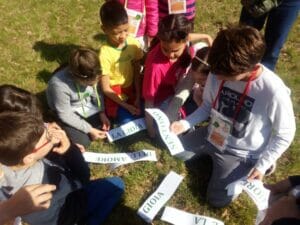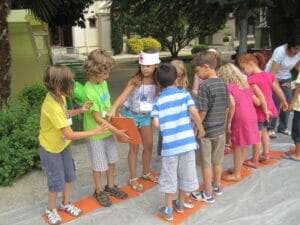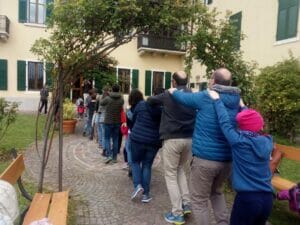who we are
Language and Methods
One strength of the Focolare Movement’s formation program is its emphasis on being “neighbors” to one another, in the Gospel sense. Children are encouraged to build true relationships with one another and to be attentive to others. It also prioritizes and values an educational method that “touches the mind, the heart and the hands”. (Pope Francis, Loppiano, May 10, 2018)

Two fundamental elements in this program:
-
- Give and communicate everything in age-appropriate ways
In order to form the “mind and heart,” the entire Gospel-based spirituality of the Focolare Movement is gradually communicated to children, together with the lifestyle that is the fruit of this spirituality. Age-appropriate language and terminology is also important. In 1966, Chiara Lubich said when speaking about their formation: “Speak to children in a way that touches their soul, because that is the best way to develop their imagination, and their will, and the other aspects of their life (…). Everything about the Movement should be given to them.” (C. Lubich, Loppiano, August 29, 1966)
- The importance of play
“For the most part, God’s will for children is that they play; their entire life is a game. Therefore, we don’t play with them only because we want to be ‘one’ with them. Playing is essential for them. Play for children is what work is for adults. If we don’t base our meetings and lessons on playing with them (…) or at least spend the majority of the time playing, (…) then we haven’t understood anything about children. (C. Lubich, Loppiano, August 29, 1966)
 Play involves the whole person and is essential for the various aspects of a child’s development:
Play involves the whole person and is essential for the various aspects of a child’s development:
- Psycho-motor: Play (especially movement games) helps children learn to perceive their place in the world around them. They are given the opportunity to explore, to comprehend, and also to become aware of their own body. Moreover, playing helps develop their motor skills by walking, running, jumping, climbing, balancing, etc.
- Cognitive: Play helps children get to know themselves, facilitates cognitive development, offers learning strategies to resolve situations, sharpens reasoning and reflection skills, and helps them make sense of events and experiences.
- Socio-emotional: Playing with others can help a child learn to recognize and express his or her emotions in appropriate ways, according to a given situation and the needs of others. This provides wonderful opportunities to form valuable, strong relationships, as well as learning to understand and respect societal norms.
 …to make themselves truly “neighbors” and “companions” on the journey of life:
…to make themselves truly “neighbors” and “companions” on the journey of life:
When adults play with children, they should try to identify with them, becoming a “neighbor” to each child, allowing themselves to be transported into their world. In this sense, it is the child who holds the hand of the adult and accompanies him or her to explore their world.
With children, there is no need for long presentations. Rather, what is important is to choose the most important concepts to communicate to them in simple ways, according to the human, spiritual or catechetical formation that are the goal in that moment. Appropriate ways to achieve this end have to be found for each group, whether it be through a game, a creative activity, a song, a skit or a dance.
